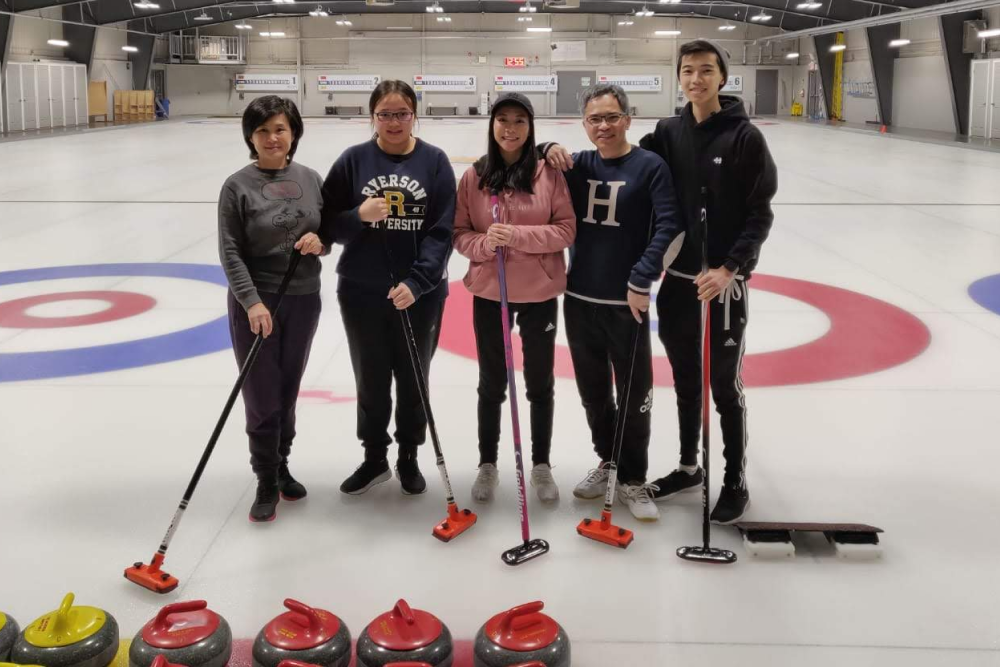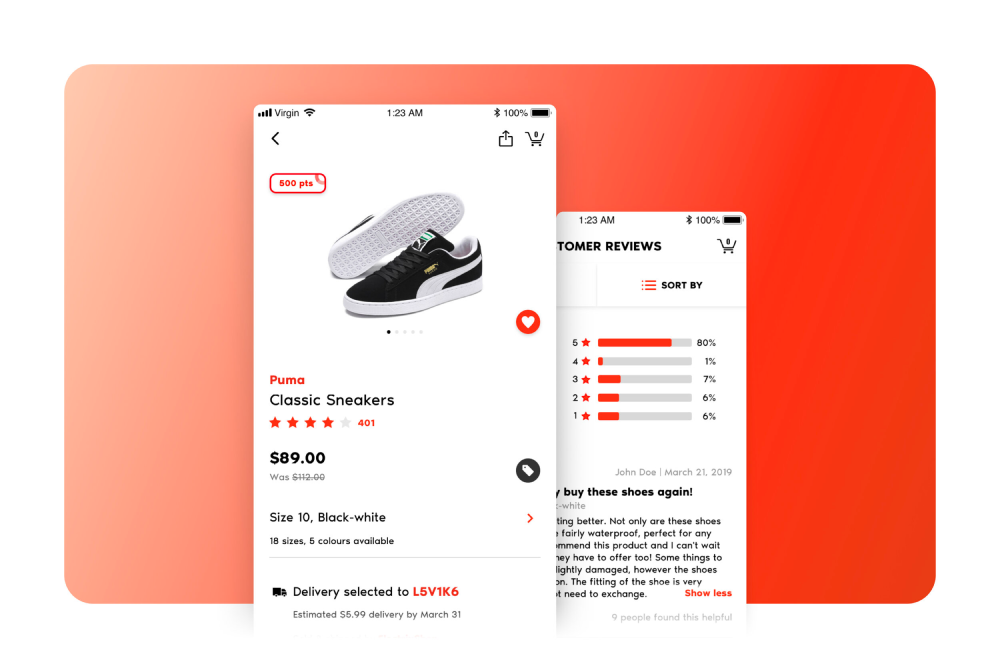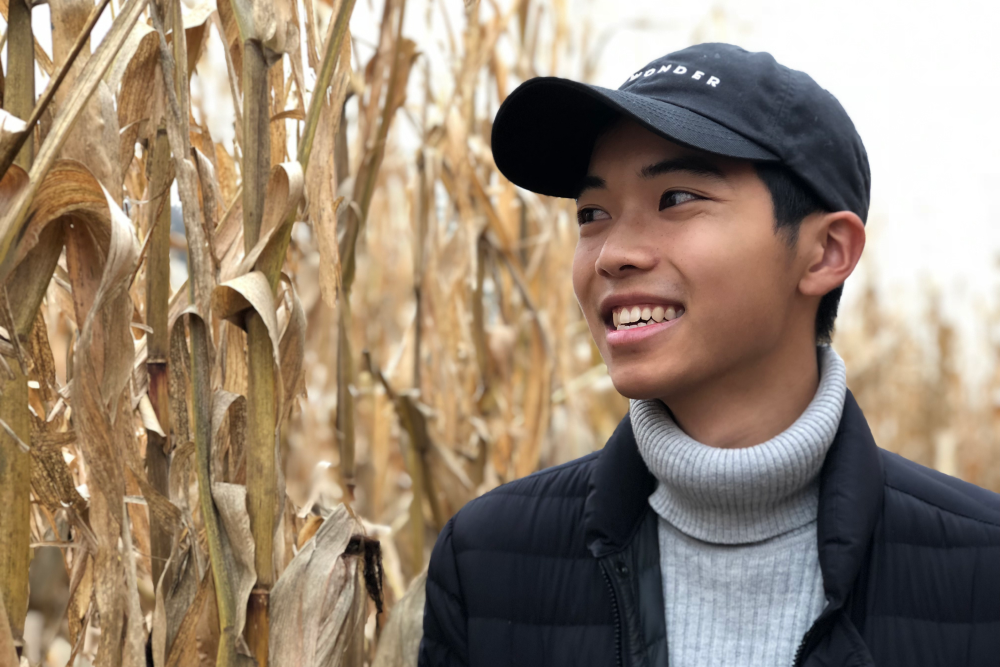Building empathetic relationships through honesty and vulnerability with Jason Au
Meet Jason Au, Toronto-based product designer, photographer, and avid foodie.
Meet Jason Au, Toronto-based product designer, photographer, and avid foodie. He shares how his mostly invisible disability shaped his life early on to prioritize what matters to him and approach life in more meaningful, intentional ways. This includes how it shaped the start of his design career and where he hopes to grow in the future.
Interviewed in November 2021
This conversation has been edited for clarity and brevity.
Tell us a bit about yourself and what you’d like readers to know about you. I’m Jason, and I’m a designer at Uber. I’m currently based in Toronto, Canada, and was raised in Mississauga. I identify as CBC or Canadian-born Chinese. And I have a mostly invisible disability.
These are the main things I identify with and what most people see externally. Also, especially identifying as Chinese, it’s what I try to practice every day to be part of my culture and heritage through food, for example. It’s also who I grew up as, and was taught by my parents to be proud of who I am. Especially growing up in Canada or America, where it might be hard to fit in.
You also mentioned an “invisible” part of your identity—your disability. What does this mean? To me, a disability is something that you can be born with or something that might have happened to your physical body. Still, it doesn’t define who you are as a person. It can, however, really shape who you are as a person.
I’ve seen how a disability can also positively affect your own life. Having a disability can provide you with a perspective to be more grateful and help other people around you learn how to empathize.
How have these various parts of your identity shaped your life so far? Before I found out I had a disability at the age of 17, most of my values revolved around making money and being as successful as possible. I never really thought about what life means or what it means to be happy. My disability helped me change my perspective in university to start pursuing the things I liked and enjoyed. And to not just follow something that offered only material satisfaction.
My disability helped me change my perspective in university to start pursuing the things I liked and enjoyed. And to not just follow something that offered only material satisfaction.
While my parents were open to what I wanted to do, I felt society strongly emphasized money and doing things in a certain order to be successful. My disability has allowed me to pause and think, “Is this right for me or somebody else?” For example, when I went to business school, going into it, I thought I was going to become an investment banker or an accountant. And that wasn’t right for me—it didn’t match me or my personality and wasn’t actually what I wanted.

My disability has also helped me connect with people differently than before. For example, I wasn’t super close to one of my current best friends before I got sick. When I did, my disability gave me a different perspective. It almost felt like a whole other dimension that allowed me to get to know her in a way that other people didn’t quite get to experience.
What changed? When I first got sick, I was so depressed that it was debilitating. I had never felt anything like that before. My whole life, I controlled every aspect of my life as much as I could, including the school that I went to and what I wanted to do. Then suddenly, there’s a big thing I can’t control at all. Around the same time, I met this friend who had gone through something similar. And immediately, we understood each other. For both of us, we had something else we could relate to on a deeper level that nobody else could.
Specifically, what made us bond was actually just grief. Grief can come in many forms, as you could grieve about somebody or something. I was grieving that I knew that I would have this condition for the rest of my life going forward. So while we were both grieving for different reasons, it felt supportive to be going through it with each other. That’s amazing to have a great friendship that comes from a difficult time. After all, what you went through can be very lonely.
So what happened from there? After learning about and grieving this new part of your identity, what decisions did you make to get to where you are today? During my second year at university, I got my first internship in marketing, and I was so bad at it! More than that, I just didn’t know what I wanted to do. At the same time, I wasn’t feeling so well health-wise. My doctor, Dr. Heather Ross, had created an app called Medly. The app allowed me to enter my weight, blood pressure, and everything else that was needed to help me better titrate my daily medications. This app helped me better manage my health and inspired me to figure out how to make the app experience better.

Did you know how apps and design worked at the time? Or did you find it interesting from a patient perspective? Initially, I was more inspired from the patient perspective, like how something as simple as asking four questions could significantly improve my quality of life. Before, I had to use paper worksheets, weigh myself, and guess whether or not to take more or less medicine. I always knew what design was because I used to do photography and graphic design. Still, I didn’t realize that design could be used in this way to have such a deep impact on a patient’s life. That’s where I first learned about UX or product design, and sparked my interest in looking into it.
I felt empowered once I did and realized that product design was what I wanted to do. So I started my next internship at Deloitte as an analyst soon after. Workdays were pretty long, late into the evenings. And after work, a few of us would get together to participate in a club to design a platform for a blockchain product. This is where I met my good friend, Angie Kwan, who showed me that becoming a designer with no prior design background is possible. I wouldn’t be where I am today in my career without Angie’s mentorship and support as a friend.
[Angie] taught me a lot of the basics of design foundations, and that’s how I first started informally learning how to design. From there, I ended up working for free at a startup to gain experience and build up my portfolio.
And you were still in university, studying design? No, I was still studying business, and it wasn’t until my last year that they came up with a minor in design. So I decided to do an extra semester to take some design courses. Otherwise, learning on the job was more helpful than learning design at school.
Afterward, I went back to Deloitte and started my design internship. I worked on my first and favorite project, a grocery app. I led the project from end to end, including research. From there, I decided to go do more internships instead of going back to school immediately.

My next internship was at Hulu, which is…funny story, I almost didn’t get. This was because I was applying everywhere in the [United] States at the time, and it turns out I filled out the applications wrong! Oh no! Luckily I found out how to fix it quickly. Hulu was the only one who replied to me, gave me a last-minute interview, and I got the internship. Of course, you’re super qualified, and I’m glad y’all made it happen. They were very empathetic to my situation and wanted to give me a chance even though I didn’t come from a design school. While everybody there did, I was from a second-tier business school that’s small in Canada!

Afterward, I returned to school and finished my last year as the pandemic hit. It was a weird time. I was interviewing at a company called Faire at the time, but I had to stop because they weren’t sure what would happen due to the pandemic. So then Angie, my friend from Deloitte, advised me to give Uber’s internship a chance, and that’s how I ended up doing that and staying on full-time.
During this entire time, as you figured out your design career, how were you also navigating this significant part of your identity that was mostly invisible to your colleagues? And was there a moment or time you decided to be more open about it with them? It came in phases. In the beginning, after learning about the disability, I was just so angry all the time, for maybe a year. And what I was angry about was that I have a disability that is mostly invisible right now. That nobody understood what I was going through—the chronic pain and difficulty of doing day-to-day tasks, the mental fog, everything. People don’t see that, and when your disability is mostly invisible, you try to act as normal as possible. It comes at a detriment to your energy and own well-being. And I always got mad that most people didn’t understand that it was tough for me to do the same things.
Then a friend changed my perspective. She taught me that instead of being mad at people who can’t empathize with me, maybe I needed also to learn to empathize with others. That is, empathize that they’ve never gone through what I’m going through and understand that they are trying their best. This reframing changed my perspective, and my anger went away. It helped me understand that while people might not understand, they care, and all I can do is try my best to explain it to them.
And empathizing with others is the part that also interested me in design. It helped me connect with people a lot easier by being truthful.

Since then, sharing my story at work has also allowed me to get to know other people. My mom explained that she sees everyone having this prophecy or a glass ball where we all get a similar amount of good, bad, and in-between. But we all have a different story of what good and bad are. So it made me realize that you don’t really know what people are going through until you get to know them by opening up and being vulnerable with yourself. That’s beautiful.
…you don’t really know what people are going through until you get to know them by opening up and being vulnerable with yourself.
You mentioned how being vulnerable can help people connect better to one another. Specifically, you’ve also taken the approach to being proactive about being truthful and honest with others about yourself and what you’re going through. Do you feel it’s been helpful over time? Yes, especially at work, it helps other people feel at ease by breaking down this imaginary ice wall. People can feel like they can share when they find that I am also vulnerable. Even for work, it’s just a job at the end of the day. You need to be there to support each other.
As I’ve gotten older, I have also realized that having a disability is nothing to be ashamed of. I’m proud of it. I know some people are at a stage where they cannot talk about it if they are going through something similar, and that is totally okay. But I want to set an example that it’s normal to bring it up and that it shouldn’t feel like having a disability is taboo. It can just be part of the conversation, and it’s a part of who I am.
As I’ve gotten older, I have also realized that having a disability is nothing to be ashamed of. I’m proud of it.
Why is the work you do and how you’ve approached it important to you? Especially being a designer, you really need to be willing to let yourself go and understand what your users are going through. It ultimately changes how you design a product and know when to really push back to make it a good experience.
And now that you’ve navigated so much of your life, any advice for your younger self? I would tell myself to be more kind to myself. Regardless of whether you have a disability or not, everybody’s usually really hard on themselves, and probably the hardest on themselves compared to others externally.
It wasn’t until more recently that I made peace with my disability. I always felt that I had to work twice as hard and fast as everyone else because I had a disability. I felt that I had to live my 20s like it was my 30s, save a ton of money, and I need to get ahead of everyone else because I would be behind one day.

My desire to always get ahead poorly manifested into not taking care of myself. For example, I used to work till 10 or 11 PM every night. And that was when I ended up getting really sick and needing to go for a transplant assessment. At that point, it hit me really hard and made me stop and think, “why did I even work so hard for my job to literally almost end my life?” It just didn’t make sense.
So then I started shifting my perspective of needing to be more kind to myself. I also need to play within my limits. My friends remind me, “so you’re going to work hard now for only two months, and then that’s it?” Basically, it’s a marathon, not a sprint. These constant reminders help me remember to be kind to myself and take care of myself.
Are there any misconceptions about having a disability that you want to dispel? Often people think a disability is what you see on the outside. Even on top of my current disability, I tell people that I also have depression, and they might question it. I would kindly ask others to pause and think that just because a person looks like they are doing amazing outside doesn’t mean they are thriving. And to remember to check in with people even if they look like they are thriving.
I would kindly ask others to pause and think that just because a person looks like they are doing amazing outside doesn’t mean they are thriving. And to remember to check in with people even if they look like they are thriving.
Some of the most successful people I know are high-functioning people who usually have the most difficult time. So while it’s not entirely disability-related, I think it’s just a good reminder to be human.

Give us a list of the top 3 things you’d recommend.
Since I’m your first Toronto-based guest, I’ll have to share some of my food recommendations! For me, visual and auditory memories are almost like a dream. But taste memories are so visceral that I can even remember the most minor details.
My top three restaurants in the Toronto area include:
Raku, and you absolutely must try the oyster udon.
Wynona has a fantastic rotating seasonal menu.
Frilu has a fantastic 10-course tasting menu.
Fave song of the moment or what do you have on repeat right now?
I’ve had Space Song by Beach House on repeat this year!
Continue the conversation with Jason.
You can find him at www.aujason.com, on Instagram @jasonsadventures, and Linkedin.
Jason is also passionate about giving back to SickKids. As part of this conversation, a donation was made to SickKids, the largest centre dedicated to improving children’s health and intensive research in Canada. Jason was diagnosed at SickKids, and wouldn’t be here today without all of their support.








